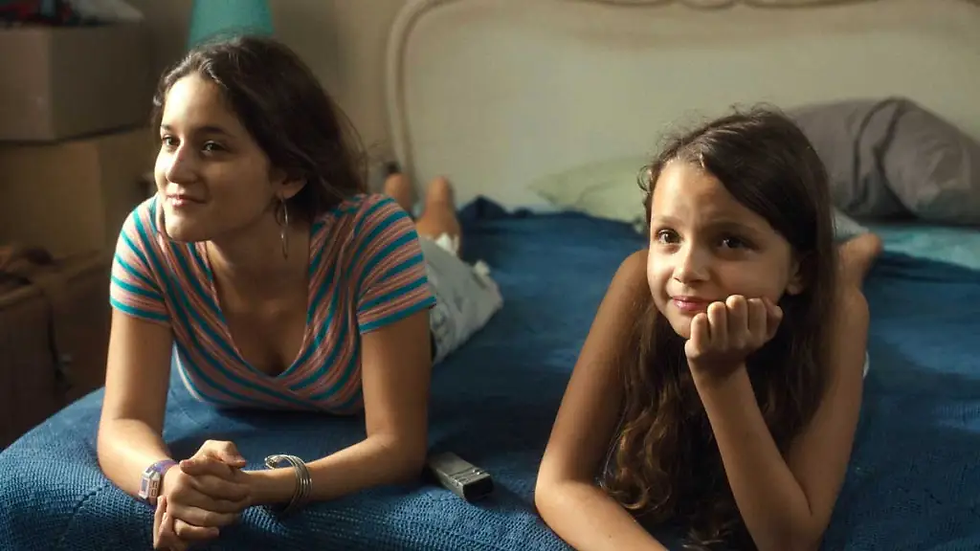International Feature: Queens (Reinas) Review
- Brandon MacMurray
- Nov 29, 2024
- 3 min read
Queens (Reinas), dir. Klaudia Reynicke

In the 1990s, Peru faced the authoritarian government of Alberto Fujimori. His leadership is known best by ruling with an iron fist and hyperinflation that skyrocketed during that decade. The economic crisis was so severe that the same essential item would double its price daily. The high cost of living and the violence forced thousands of Peruvians to leave the country and seek another place to start their lives again. Based on this historical premise, Klaudia Reynicke develops a drama about family.
Carlos (Gonzalo Molina) is a man who seeks out any work he can to make a living. He drives a taxi and works as a security guard for his uncle; whatever odd job he can find. Suddenly, Carlos decides to return to the lives of his daughters, Aurora (Luana Vega Sousa) and Lucía (Abril Gjurinovic), who are leaving the country to go to Minnesota with Elena (Jimena Lindo), their mother, who got a job invitation there. He gets to spend their last days in Luma with them, while he procrastinates signing their travel permit to leave the country.

Reynicke, a Peruvian based in Switzerland, surrounds the viewer with the rough economic situation of Latin America in the 1990s. The political uncertainties have drastically influenced the financial prospects and has made living in the country difficult and dangerous. The director successfully translates that feeling to the screen. The production design contrasts the barricades of the military control upon Lima, the capital of Peru and accentuates a deteriorating city, where people trade old tires for a bathing suit or a kilogram of sugar. The difficulty of access to their daily needs is well translated. The cinematography, collaboratively with the set design, constantly reminds us that the city is sinking into ruin.
Narratively, the film swings between the lack of confidence and trust that everyone has in Carlos and his attempt to be someone new, a present father. Aurora and Lucía do not know how to act with their father. They keep a distance when they first talk to him, as he attempts to reconcile a relationship that needs to bond again. Reynicke's writing thrives the most when their relationship is gradually developing. The conversations to know more about Carlos's life and his absence are thrilling because the girls confront his reasons. They are nuanced conversations that imprint realism to the approach.

The beach acts as a central location narratively. It is where Aurora's boyfriend lives, and it is a refuge from the chaos of Lima. It is an oasis in the middle of their desert of dreams. Everything seems hopeless in their home in Lima, but life is great again at the seaside. These dichotomies bring a lot of substance to the film. It is a father-daughter film, but it deals with numerous subtexts that analyze the complexity of Latin American reality.
Reinas is Klaudia Reynicke's letter of love to her homeplace. It is a loving film that deals with political uncertainties, parental absence, and resilience, topics familiar to Latin Americans. But her subtle approach and caring tone deliver a universal experience that is sure to connect with the audience.
Reinas World premiered at the Sundance Film Festival 2024. It is the Swiss submission for the Best International category at the 97th Academy Awards. It is now playing in theatres across Canada starting today, November 29th.
Review by: Pedro Lima




Comments